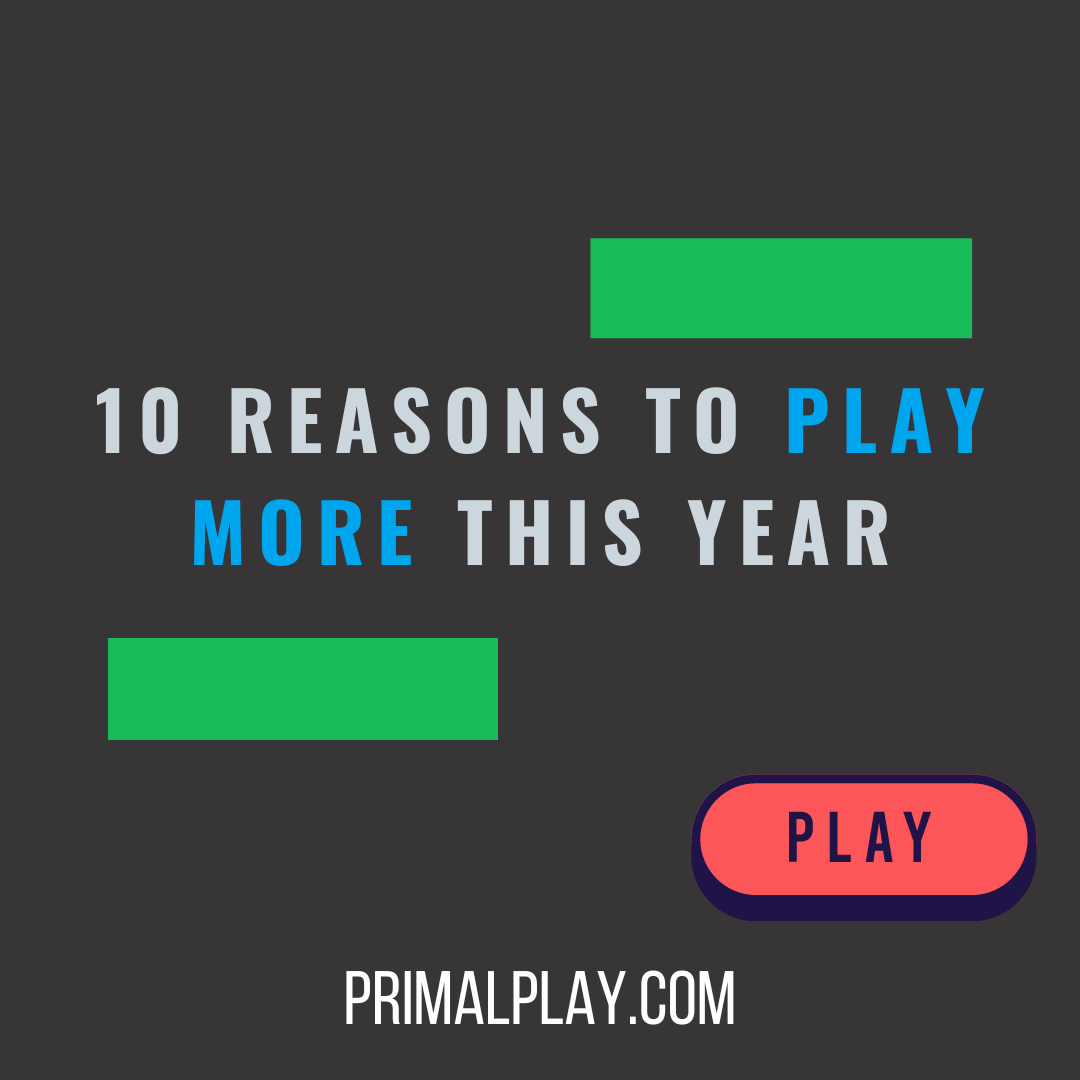5 Reasons Why You Should Playout Instead of Workout
Why Workout When You Can Playout?
5 REASONS WHY YOU SHOULD PLAYOUT INSTEAD OF WORKOUT.
Playouts Are More Fun!
FIND WORKING OUT TOO MUCH OF A CHALLENGE?
Do you workout? Or is there not enough time? Not the right equipment? No gym access? No motivation to exercise when it feels like a chore? No wonder many of us fail to do it.
As grown-ups, the fun in one’s movement or exercise practice often becomes secondary, and the results are primary. As adults, exercise is the means to this end, the end that focuses on avoiding the negatives around physical inactivity. As a result, the outcome and goals frequently set may neglect the ability to enjoy the process. But without joy, we have little access to intrinsic motivation and often give up.
But what if we could combine play with a regular exercise routine and make it fun, competitive, and social? We know regular physical activity is good for our health. What if we could achieve the results we have always wanted in less time while enjoying the process?
Why workout when you can playout?
““I have to exercise in the morning before my brain figures out what I’m doing.””
Kids finding time to playout!
1. Playouts Are Inherently More Fun!
Cast your mind back to childhood moments when you ran around the playground. Better yet, can you recollect how you used to play and swing from one monkey bar to the next? Climb a tree or balance on a railing?
When we were kids, we loved to move—we ran, climbed, skipped, and jumped—and we called it PLAY because it was fun. We loved to move outside. These were helpful exercises that your young mind interpreted as delightful. However, the concept of fun and play may have changed for you as an adult, causing you to adopt strict exercising routines to keep fit.
Rather than working to achieve the desired end goal, play your way there! Lose yourself in the play, and the results will come naturally! There are ways to have more fun with fitness; however, playouts are one of the best ways to get there.
Are there more benefits from playouts than solely working out? Read on to find out more.
2. PLAYOUTS Reduce The Tendency For Snack Gratification.
Research has revealed that most people feel entitled to unhealthy snacking after exercising. [3] One study found that the more fun people perceived the race to be during a competitive race, the less likely they were to compensate with a snack afterwards. Another study found that going for a scenic walk rather than walking for exercise led to a lower likelihood of selecting a dessert at mealtimes with less snacking during the day. [2]
This habit is a natural reaction triggered within moments of partaking in strenuous physical activity, deemed a reward for all the hard work. However, without significant willpower, this internal self-rewarding mechanism can be challenging. Unfortunately, it has been one of the most common reasons some people can’t stick to a schedule that will benefit them in the long run.
However, when the brain interprets these same activities as playouts or fun, there’s little room for hedonic hunger, which is the insatiable drive to seek pleasure from food, especially high-calorie, less-nutritious junk meals. Indeed, drawing the line between playout and working out can be challenging. However, the starting point is how you perceive the physical activity you’re engaged in. As a tip, you can commit to a daily dance routine to your favourite music that compels you to move vigorously and joyfully—reframing your movement around play and, as something fun, reduces compensation through food consumption. In addition, labelling an activity as fun may reduce the likelihood of compensating with food as a reward. In other words, you are less likely to “move more and eat more”.
RELATED: Why Play Is For Everyone3. PLAYOUTS decrease the heightened focus on weight loss.
For many people, the focus of a workout is just to lose weight, which puts a lot of pressure on their mental health.
According to Ipsos, 45% of people globally are focused on losing weight.[5] In the USA, 62.9% of adults believe exercising is the most convenient way to achieve a healthy weight. [6] In the UK, a survey of over 2000 adults reported that over 70% of us are uncomfortable with our weight.
The evidence suggests that vigorous exercise helps maintain body composition, and higher intensity can reduce body fat. [1] The statistics demonstrate how many feel the pressure attached to their appearance rather than how they feel.
Fortunately, playouts reduce the focus and mental pressure as you gear your mental energies towards having fun and not just a routine to burn body fat. So, in the long run, you will improve your physical and psychological health without the burden of just thinking about how you look.
A playout helps you to focus on the moment more so than just the end result.
RELATED: Top 10 Benefits of Play4. Playouts are easier to incorporate as a routine.
Unlike the demands to consciously fit workouts into your schedule, playout time can be flexible. You can playout anytime, anyplace and anywhere you choose. If you live with a friend or relatives, you can create competitive fun activities with them.
For example, whoever gets to perform the coin drop game five times without dropping any coins, earns the right to determine the next playout activity. It will be more fun to set healthy but enjoyable activity-filled conditions for the person who loses to do with you.
According to the activity engagement theory, [4] focusing on how enjoyable an activity is may increase intrinsic motivation and positively affect the desire to want to continue. As I often say, “play is not the activity but the attitude”. The mindset you bring to the activity makes all the difference.
5. Playouts activate the feel-good hormones.
One outcome of taking part in exercise is dopamine release, one of the feel-good hormones—which governs how we respond to risk and reward. It is often termed the runners-high as it has a natural pain-relieving effect that makes our minds and bodies feel better post-activity.
However, there’s another critical hormone activated through play, which is serotonin. Serotonin is referred to as the happy hormone, and it’s released in the body through play, happy events, exciting memories, and fun-filled activities such as dancing. It also enhances communication between brain cells, enhancing cognitive function and improving focus and concentration. Furthermore, it improves digestion, regulates eating habits, and aids quality sleep. Serotonin positively impacts the entire body.
The next time you feel undecided about working out, turn it into a playout activity you’ll never tire of. Of course, there’s so much to benefit from exercising, but wouldn’t it be better to have fun while doing it? Hopefully, the reasons listed above will give you the push you need to get started.
Play. Doesn’t that sound like something you’d want to do regularly?
RELATED POSTS:
5 reasons why you should playout instead of workout!
REFERENCES:
[1] Guo, Wenji et al. “Physical activity in relation to body size and composition in women in UK Biobank.” Annals of epidemiology vol. 25,6 (2015): 406-413.e6. doi:10.1016/j.annepidem.2015.01.015
[2] Werle, Carolina O., et al. “Is It Fun or Exercise? the Framing of Physical Activity Biases Subsequent Snacking.” Marketing Letters, vol. 26, no. 4, 2014, pp. 691–702., https://doi.org/10.1007/s11002-014-9301-6.
[3] Albarracin, Dolores et al. “Immediate increase in food intake following exercise messages.” Obesity (Silver Spring, Md.) vol. 17,7 (2009): 1451-2. doi:10.1038/oby.2009.16
[4] Higgins, E. T., & Trope, Y. “Activity engagement theory: implications of multiply identifiable input for intrinsic motivation.” In E. T. Higgins & R. M. Sorrentino (Eds.), Handbook of motivation and cognition: Foundations of social behaviour (Vol. 2, pp. 229–264). New York: Guilford Press.
[5] 45% Of People Globally Are Currently Trying to Lose Weight | Ipsos. https://www.ipsos.com/en/global-weight-and-actions.
[6] “Attempts to Lose Weight among Adults in the United States, 2013–2016.” CDC, 2019, www.cdc.gov/nchs/products/databriefs/db313.htm.










